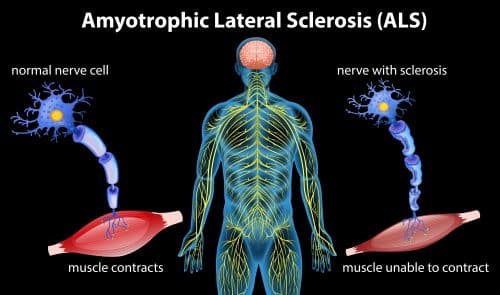The platform helps in finding markers for personalized medicine and improves the development of drugs for neurodegenerative diseases of the nervous system

BGN Technologies, the technology commercialization company of Ben-Gurion University of the Negev, announced a new platform that uses artificial intelligence (AI) to monitor and predict the progression of neurodegenerative diseases. The platform will be used to identify markers for personalized treatments and to improve the drug development process for these diseases. The technology, developed by Professor Beaz Lerner from the University's Department of Industrial Engineering and Management, will first focus on ALS (Lou Gehrig's disease), and will later be adapted to other degenerative diseases of the nervous system, such as Parkinson's and Alzheimer's.
ALS is a disease of the motor nerves that almost always gets worse over time. The research and development of drugs for the disease encounter difficulties because of its heterogeneity, which is reflected in great variation in the initial symptoms, the rate and manner of the disease's progression, and the duration of survival. A reliable division of patients into homogeneous subgroups and a personalized prediction of how the disease progresses in the various subgroups, achieved by the platform, will improve the treatment of patients and their quality of life. The new platform can also improve the design of clinical trials and the ability to evaluate the effect of treatment by identifying markers common to patients who have responded to treatment, thereby increasing the success rate of trials.
The platform analyzes demographic and clinical data with the help of machine learning and data mining algorithms, to produce models that can predict the rate and pattern of ALS progression, identify factors that contribute to prediction (such as certain laboratory tests or vital signs) and group subpopulations from the heterogeneous population of people with ALS. As clinical data is added for each patient, the algorithms improve and thus the ability to predict the progression of the disease improves.
Prof. Lerner: "One of the biggest challenges in planning and managing clinical studies for ALS stems from the fact that not only is it a rare disease, but also its clinical heterogeneity makes it difficult to identify markers that are in correlation with the severity of the disease, and which enable successful clinical trials. As a result, after decades of research, there is still no real cure for ALS and other neurodegenerative diseases, such as Alzheimer's disease. The new platform, which uses machine learning algorithms, will allow not only the accurate prediction of disease progression, an essential element in planning more successful clinical trials, but also the identification of relationships between demographic data, various physiological indices and the patients' level of functioning, which will advance the study of this serious disease . In parallel with the continued validation of the platform for ALS with the help of clinical data from the patients, we are now expanding the use of the platform for other neurodegenerative diseases of the nervous system, such as Parkinson's and Alzheimer's."
Itzik Mashiach, Business Development at BGN Technologies: "Now that we have established and tested the algorithms that produce the models, the funding we recently received from the Israel Innovation Authority will allow the researchers to produce a system that can be implemented on personal computers, the cloud, and mobile applications for personal monitoring and predicting the progress of the disease for the benefit of patients, The doctors, therapists, pharmaceutical companies and health funds. We are currently looking for a business partner to further develop and commercialize this invention, for which a patent application has been submitted."
